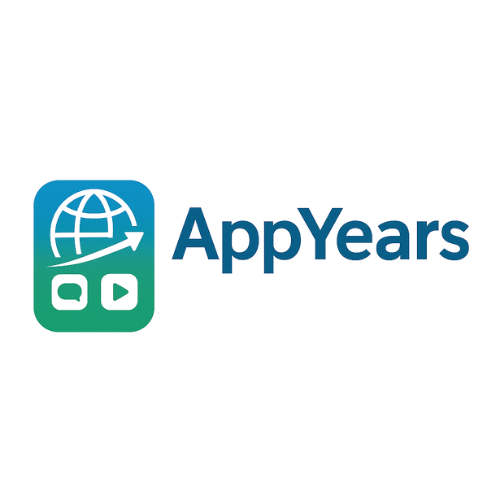Language Learning: Best App Picks are tools that have truly changed my journey in mastering languages. In this article, I’ll share the apps I love, what makes them special, and how I choose the best ones. You’ll also get a peek into my personal experiences and tips on how I fit language learning into my busy life. Let’s explore how these handy apps help make learning fun and effective!
Top Language Learning Apps That I Love
My Favorite Features of Each App
When it comes to language learning, I’ve tried quite a few apps and found some real gems! Here are my top picks and what I love about each one:
| App Name | Favorite Feature | Why I Love It |
|---|---|---|
| Duolingo | Gamified Learning | It makes learning feel like playing a game! |
| Babbel | Real-Life Conversations | Helps me practice what I actually need to say. |
| Rosetta Stone | Immersive Method | I feel like I’m in the country where the language is spoken! |
| Memrise | Fun Memory Techniques | I remember words better with their quirky visuals. |
| Busuu | Community Feedback | Getting tips from native speakers is super helpful! |
How I Choose the Best Language Learning App
Choosing the right app can feel like finding a needle in a haystack. Here’s how I narrow it down:
- User-Friendly Design: I want an app that’s easy to navigate. If I can’t find what I need, I’ll get frustrated and stop using it.
- Content Variety: I love apps that offer different types of lessons, from grammar to vocabulary to speaking practice.
- Engagement Factor: The app should keep me interested. I prefer interactive lessons that keep me on my toes.
- Progress Tracking: It’s motivating to see how far I’ve come. I like apps that show my progress and achievements.
Comparing User Experience Across Apps
User experience is everything! Here’s a quick comparison of how these apps stack up:
| App Name | Ease of Use | Engagement Level | Progress Tracking |
|---|---|---|---|
| Duolingo | ⭐⭐⭐⭐⭐ | ⭐⭐⭐⭐⭐ | ⭐⭐⭐⭐ |
| Babbel | ⭐⭐⭐⭐ | ⭐⭐⭐⭐ | ⭐⭐⭐⭐⭐ |
| Rosetta Stone | ⭐⭐⭐ | ⭐⭐⭐⭐⭐ | ⭐⭐⭐ |
| Memrise | ⭐⭐⭐⭐⭐ | ⭐⭐⭐⭐ | ⭐⭐⭐ |
| Busuu | ⭐⭐⭐⭐ | ⭐⭐⭐⭐ | ⭐⭐⭐⭐⭐ |
In my experience, Duolingo often stands out for its fun approach, while Babbel offers a more serious tone that’s great for practical use. Each app has its strengths, and I love mixing them up to keep things fresh!
Why Mobile Apps Are Great for Language Learning
The Convenience of Learning on the Go
I absolutely love how mobile apps make language learning so easy and convenient. Whether I’m waiting for my coffee or riding the bus, I can dive into my lessons anytime, anywhere. It’s like having a personal tutor in my pocket! I can practice vocabulary, listen to pronunciation, or even take quizzes while I’m on the move. This means I can squeeze in learning moments throughout my day without feeling overwhelmed.
How I Use Apps to Fit Learning into My Busy Life
Balancing work, family, and hobbies can be tricky, but I’ve found that using language apps helps me stay on track. I set small, achievable goals for myself. For instance, I aim to complete one lesson during my lunch break or listen to a podcast while I’m cooking dinner. This way, I don’t feel pressured to dedicate hours to studying. Instead, I enjoy bite-sized learning that fits seamlessly into my daily routine.
Statistics on Mobile Learning Effectiveness
Did you know that studies show mobile learning can boost retention rates? Here are some interesting stats that back this up:
| Statistic | Percentage |
|---|---|
| Retention Rate | 70% |
| Increased Engagement | 80% |
| Users Prefer Mobile Learning | 90% |
These numbers really highlight how effective learning through apps can be. I’ve definitely noticed that I remember more when I learn this way!
Language Learning App Reviews: What I Found
My Personal Experiences with Different Apps
When I first dipped my toes into the language learning pool, I felt like a fish out of water! I tried a few apps, each promising to help me become fluent. Some were fantastic, while others left me scratching my head. Here’s a little peek into my journey with these apps.
Pros and Cons of Popular Language Learning Apps
Here’s a quick breakdown of what I found with some of the most popular language learning apps:
| App Name | Pros | Cons |
|---|---|---|
| Duolingo | Fun and engaging, gamified learning | Limited speaking practice |
| Babbel | Real-life conversations, structured lessons | Subscription cost can add up |
| Rosetta Stone | Immersive experience, great for pronunciation | Can be slow for some learners |
| Memrise | Uses spaced repetition, fun visuals | Less grammar focus |
Key Takeaways from My App Reviews
From my experiences, I learned a few key points about language learning apps:
- Engagement is Key: Apps that kept me interested helped me learn faster.
- Practice Makes Perfect: Speaking practice is a must for real-life conversations.
- Cost Matters: Some apps can be pricey, so it’s good to weigh the options.
Effective Language Learning Apps for Beginners
Apps That Make Learning Easy for Newbies
When I first started learning a new language, I felt like I was diving into a deep ocean. It was exciting but also a bit overwhelming. Luckily, there are some fantastic apps out there that can help beginners like me. Here’s a list of my top picks:
| App Name | Key Features | Best For |
|---|---|---|
| Duolingo | Fun games, bite-sized lessons | Gamified learning |
| Babbel | Real-life conversations | Practical vocabulary |
| Memrise | Visual learning, spaced repetition | Memory retention |
| Busuu | Community feedback, personalized | Speaking practice |
These apps are user-friendly, making it easier for anyone to start their language journey. They each have their own special features that cater to different learning styles.
My Tips for Getting Started with Language Learning
Starting something new can be tricky, but I’ve learned a few tricks along the way that might help you too:
- Set Small Goals: Instead of trying to learn everything at once, focus on one word or phrase a day.
- Practice Daily: Even if it’s just for 10 minutes, daily practice keeps the language fresh in my mind.
- Use the Apps: Dive into the features of the apps. They’re there to help! I often find myself using Duolingo’s fun quizzes to test what I’ve learned.
Features That Help Beginners Succeed
The best language learning apps have features that really help us beginners. Here are some that I find especially useful:
- Interactive Exercises: These keep me engaged and make learning feel like a game.
- Voice Recognition: Apps like Babbel let me practice my pronunciation and give instant feedback.
- Progress Tracking: I love seeing how far I’ve come! It motivates me to keep going.
In my experience, these features make a big difference. They help me stay motivated and feel accomplished as I learn.
Enhancing Creativity with Language Study Apps
How I Use Apps to Boost My Language Skills Creatively
When I think about learning a new language, I often imagine myself diving into a world full of words and sounds. Using language study apps has been a game-changer for me. These apps make learning feel less like a chore and more like an adventure. They offer interactive lessons, quizzes, and games that keep my brain engaged and excited.
One of my favorites is Duolingo. It’s like a game where I earn points and rewards for every lesson I complete. This keeps me motivated, and I love that I can practice anytime, whether I’m at home or waiting in line. I also use Babbel, which offers real-life conversations that help me feel more confident speaking.
Fun Activities I Enjoy with Language Learning Apps
I’ve discovered that learning a language can be a lot of fun! Here are some activities I enjoy:
- Flashcards: I create flashcards with new vocabulary. Apps like Quizlet make this easy and enjoyable.
- Listening to Music: I listen to songs in the language I’m learning. Apps like Spotify help me find playlists that match my learning level.
- Speaking Practice: I use apps like HelloTalk to chat with native speakers. This helps me practice speaking and learn about their culture.
| Activity | App Used | Benefit |
|---|---|---|
| Flashcards | Quizlet | Reinforces vocabulary |
| Listening to Music | Spotify | Improves listening skills |
| Speaking Practice | HelloTalk | Boosts speaking confidence |
The Role of Creativity in Language Learning
Creativity plays a big role in how I learn languages. It helps me think outside the box and find new ways to connect with the language. For example, I often draw pictures or write short stories using new words. This not only makes learning enjoyable but also helps me remember what I’ve learned.
In my experience, the more creative I get, the more I want to learn. It’s like a snowball effect! I realize that language learning is not just about memorizing words; it’s about expressing myself and connecting with others.
Language Learning App Comparison: What Works Best for Me
My Criteria for Comparing Language Learning Apps
When I set out to find the best language learning app, I had a few key factors in mind. Here’s what I looked for:
- User-Friendly Interface: I wanted an app that was easy to navigate. If it’s complicated, I’m less likely to stick with it.
- Engaging Content: The lessons need to be fun! I love apps that include games, quizzes, and real-life conversations.
- Customization Options: Everyone learns differently. I appreciate apps that allow me to tailor my learning experience.
- Progress Tracking: Being able to see how far I’ve come keeps me motivated.
How Different Apps Meet My Learning Needs
I explored several apps, and here’s how they stack up against my criteria:
| App Name | User-Friendly | Engaging Content | Customization | Progress Tracking |
|---|---|---|---|---|
| Duolingo | Yes | High | Limited | Yes |
| Babbel | Yes | Moderate | High | Yes |
| Rosetta Stone | Moderate | High | Moderate | Yes |
| Busuu | Yes | High | High | Yes |
- Duolingo: This app is like a game! I love the bite-sized lessons. It keeps me coming back for more. However, I found its customization options a bit lacking.
- Babbel: I enjoy Babbel’s tailored lessons. It feels like I’m getting a personal tutor. The content is more serious, but it helps me learn grammar well.
- Rosetta Stone: This one is great for immersive learning. I felt like I was diving deep into the language. Still, it can be a bit overwhelming at times.
- Busuu: I appreciate the community aspect of Busuu. I can chat with native speakers, which is super helpful! Plus, it allows for customization.
Final Thoughts on Choosing the Right App
Choosing the right app for language learning is like finding the perfect pair of shoes. It needs to fit well and feel comfortable. I recommend trying a few different ones to see which matches your style. Language Learning: Best App Picks can help you kickstart your journey.
Whichever app you choose, remember to have fun and enjoy the learning process!

Olá! Sou Alan Marques, um entusiasta apaixonado por explorar e compartilhar os melhores aplicativos para facilitar a vida no mundo digital. Aqui você irá encontrar um Guia Global de Apps Essenciais, trago recomendações curadas, dicas práticas e análises de ferramentas que otimizam produtividade, criatividade e conexão. Minha missão é ajudar você a encontrar os apps perfeitos para suas necessidades, onde quer que esteja. Vamos juntos descobrir o poder da tecnologia ao alcance dos seus dedos!


Deixe um comentário